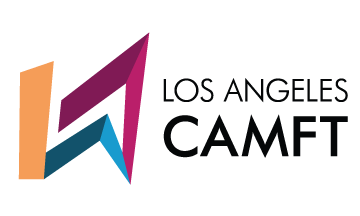
Los Angeles Chapter — California Association of Marriage and Family Therapists
Member Article | Any McManus |
March 2019
Amy McManus, LMFT the Disappearance of Personal Privacy? Privacy is becoming obsolete. From what I’ve seen through interactions with younger generations, privacy isn’t even something they value. For instance, last June, Facebook told TechCrunch that “Since 2016, Facebook has been paying users ages 13 to 35 up to $20 per month plus referral fees to sell their privacy by installing the iOS or Android ‘Facebook Research’ app…(Facebook) gets nearly limitless access to a user’s device once they install the app.” Teens value instant access to information, not only about the world in general, but also about the intimate details of the lives of “friends,” “friends of friends” and “influencers.” Privacy is not even on their radar. Additionally, we know that all kinds of data regarding our private lives are collected by Facebook, Google, and Amazon. When we sign up for a “free” service or newsletter, our data are being shared for monetary gain. “If you’re not paying, then you are the product” goes the warning. The giant stash of unsolicited emails in your inbox, and the huge increase in robocalls (predicted to be almost half of all phone calls in 2019!) are a testament to this concept. Much has been written on the negative effects of social media use on mental health, but what about the devaluation of privacy? Are millennials and subsequent generations doomed to suffer from the death of private life as we used to know it? Recently, there is significant hope that data about Americans’ private lives can be used to positively affect mental health. Just this past July, political scientist Gary King, director of Harvard University’s Institute for Quantitative Social Science, teamed up with Stanford law professor Nathan Persily. They have formed a company called Social Science One (SSO), an independent research body that will give social science researchers access to data inside Facebook, along with the ability to publish their findings without prior approval from Facebook itself. The stated purpose of SSO is to create “an unprecedented partnership between social scientists and private industry to advance the goals of understanding and solving society’s greatest challenges.” They have partnered with eight non-profit organizations and gathered social science researchers from all over the world to create a team that is well-equipped to tackle this problem. Currently, SSO has gained access to Facebook data that they are using to study “the effects of social media on elections and democracy.” Clearly a hot-button topic in the media right now. And what does Facebook have to say? SSO tells us, “We are happy to report that Facebook is now in the midst of a major project to construct an entirely new set of security and privacy systems, including cutting edge differential privacy tools, for data access by researchers.” Although Facebook continues to be frustratingly slow to release the desired information, SSO is able to begin their data analysis even before Facebook’s new systems are up and running. So how does this affect us as therapists? Mining data from Facebook in order to study elections is just the beginning. If SSO is able to continue to study the data to learn more in the name of “solving society’s greatest challenges,” then they could certainly use the data to study ways to improve mental health. We could learn what someone who is depressed or even suicidal searches for on Google, or watch on YouTube. Then, instead of being fed the ubiquitous ads for whatever they were recently searching on Amazon, they could be sent a chat box where a trained mental health worker would ask if they would like to “chat.” If a child was being cyber-bullied, parents and other authorities could be alerted to the problem, and parents could receive information about support services. People with all kinds of mental health issues could be funneled to support groups and chat rooms. In other words, if someone’s use of social media told us that they are suffering from a mental health issue, they could be sent messages of support and hope. The isolation of those with mental health issues could be significantly reduced. If you are like me, you are probably cringing at the implications for personal privacy. Personal privacy is something most of my generation, the Baby Boomers, holds as sacred. We all remember reading 1984 and shivering at the thought of “Big Brother”. And we are not alone in our fears. But the age of personal privacy is coming to an end whether we like it or not. Now is the time to start an open debate in the mental health community and in our community at large about the possibility of using personal data in ways that could improve the mental health of our society as it is today. Let’s think out-of-the box and use the new generation’s disregard of privacy to our advantage. Let’s work together to find ways to use this abundance of data to improve the mental health of people we might not otherwise be able to reach. Amy McManus, LMFT, specializes in communication between parents and teens. Amy previously worked for four years as a school counselor in various high schools in Los Angeles. She has raised four teenagers of her own, and is married to a high school teacher and administrator. Amy’s weekly blog (http://www.thrivetherapyla.com/blog/) offers parenting tips and other mental health information for parents and teens. You can contact Amy at amymcmanuslmft@gmail.com. |






